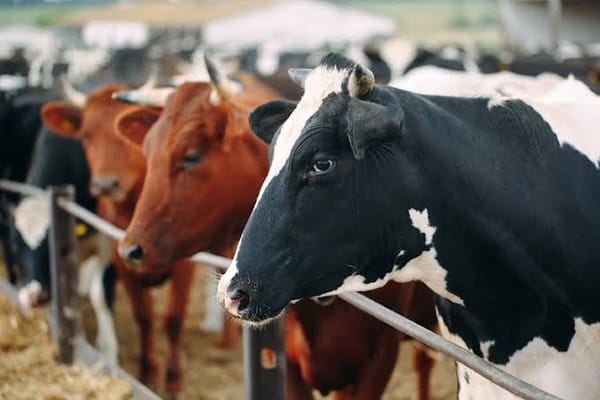
Germany's traffic-light coalition means new road ahead for CEE carmakers
As Germany opens a new chapter with an unprecedented three-party coalition led by Social Democrat Chancellor Olaf Scholz, the Central European Times analyses what the country’s new leadership could mean for the region.
After a near-record term in office, Angela Merkel stepped down as German chancellor after 16 years on Wednesday, before the Bundestag elected former vice-chancellor and finance minister Olaf Scholz as her successor. The low-key politician – who was not considered a serious contender to succeed Merkel as recently six months ago – faces the dual challenge of keeping his ruling coalition together while helping steer the country through a particularly damaging COVID wave.
Judging from the 177-page long coalition agreement signed by the Social Democrats, the Greens and the Free Democrats “traffic light coalition”, the next German government will be cautiously progressive, walking the line between maintaining a competitive economy and safeguarding jobs, and climate protection.
Central Europe is specifically referenced only once in the agreement: on relations with Russia and a German pledge to take the CEE region more seriously in its dealings with Moscow. Unlike the East German Merkel, neither Scholz nor his senior cabinet members (Minister for Economic Affairs and Climate Protection Robert Habeck, Finance Minister Christian Lindner and Foreign Minister Annalena Baerbock) have a strong personal connection with Central Europe. Nevertheless, a shift in Germany’s economic and climate policies will have significant impact on the CEE region, which is heavily dependent on German trade and investment and considered the backyard of its automotive industry.
Greens co-leader Habeck will seek to uphold environmental sustainability while assuaging corporate German interests. For Central Europe, the future of the car industry is pivotal: as underlined in the coalition agreement, Germany intends to become a leading market for electromobility, with a production goal of 15 million electric cars by 2030.
The government will strongly support European Commission plans to phase out the internal combustion engine by 2035, which will put pressure on all vehicle manufacturers, including those with factories in Central Europe. While most existing plants will be restructured to meet future needs, there are also new investments on the horizon, for example BMW will build a new car factory in Debrecen, east Hungary, that will solely produce electric cars from 2025.
However some of the region’s SMEs will be less fortunate in the battle for survival between suppliers, as electric cars will require both fewer parts, and suppliers. In Germany alone some 200,000 people are in employment jeopardy, and many in Central Europe could be affected, too. Judith Kirton-Darling, deputy general secretary of the trade union federation Industriall Europe, has warned that this green transition be Europe’s biggest societal disruption since the industrial revolution and could lead to widespread insecurity and even political tumult, if not properly managed.
Others are more sanguine: Kai Olaf Lang, German think-tank Stiftung Wissenschaft und Politik researcher recently told CET that “the main question here is the distribution of labour. I think there would be a lot of possibilities for cooperation among German and Central European companies. A green transition could also provide an opportunity for Central Europeans to push for a more innovative economy: it is our common interest to find a sustainable future for the car industry,” he told the Central European Times.
Competition is high in the predominantly Asian-backed battery manufacturing industry in CEE, as Hungary, Poland and the Czech Republic all host factories. Germany will however be keen to secure its own production centre, including research and development, production and recycling.
The incoming government has expressed a desire to turn Germany into a global hub for semi-conductors, which could interest many CEE companies. Hydrogen technology – increasingly seen as a key pillar for Europe’s decarbonisation – also offers potential long-term co-operation opportunities for firms in the region.
Energy questions could also be a bone of contention between the German government and their counterparts in CEE. The coalition agreement expressly rules out nuclear energy and the reopening of nuclear power plants. This has been a defining policy for the Greens, and the prospect of Poland’s new nuclear power plants near its German border will lead to tensions. Conversely, the recently completed Nord Stream 2 pipeline between Russia and Germany will be a contentious issue for the Poles.
The incoming coalition favours “technologically neutral answers” and would build its energy mix mostly on renewable – especially solar and wind – technologies, while using natural gas during a period of transition. The traffic-light coalition will back the European Commission’s decarbonisation “Fit for 55” package, which Poland and Hungary have criticised as putting burdening weaker economies and poorer citizens. This battle will mainly be fought in Brussels, however.
The most fundamental changes towards Central Europe will be in foreign and collective European policy. The German foreign ministry, led by 40-year-old Annalena Baerbock, who co-leads the Greens with Habeck, will pursue a more democracy- and rule-of-law-oriented policy and indicate that democratic backsliding will not be tolerated and a mutually beneficial economic cooperation cannot compensate for restricting the independence of the judiciary or curtailing checks and balances. This is undoubtedly a message to Hungary and Poland without calling them by name.
The German coalition agreement states that it will fully back both EU Article 7 procedures and the European Commission’s rule of law conditionality mechanism linking funding to democratic practices. The removal of member state veto rights would be a major game-changer for European politics. If Germany pushes for qualified majorities being sufficient to pass Council and foreign-policy positions, rather than unanimity, this will strip countries of the ability to block joint resolutions. Whatever happens regarding these procedures, heated debates lie ahead, especially if the Orbán government maintains its grip on power in Hungary next year, and Poland’s PiS does likewise in 2023.





